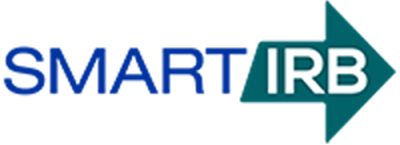Authorization Agreements
If you are conducting research at Boston College in conjunction with another university, hospital, or other institution that has an IRB, you may request an IRB Authorization Agreement (IAA), also known as a Single IRB or Reliance Agreement.
What is an IAA?
An IAA is an agreement between multiple IRBs to cede review to one of the IRBs engaged in the research (the IRB of record). An IAA is helpful because it takes the burden off the PI to have to submit revisions, amendments, etc. to multiple IRBs for the same study. With an IAA, the PI can submit any changes to ONE institution (the IRB of record), who then reviews and approves the protocol. The PI has the responsibility of sending the other IRBs (the relying IRBs) any updated approvals from the IRB of record to keep on file.
How do I decide who the IRB of record is?
Typically, the IRB of record is the IRB where the majority of the research will be conducted, the main funding recipient, or the institution that the main PI is affiliated with. Sometimes it is best to choose an institution whose IRB has expertise reviewing the type of research that is proposed in the protocol. If you are unsure of which IRB should act as the IRB of record, you should first discuss this with your co-PIs. If it still is not clear who is better suited to be the IRB of record, you can send us an email at irb@bc.edu and we can help guide you.
How do I request an IAA?
Boston College is a participating institution in SMART IRB. SMART IRB is a platform designed to ease challenges associated with initiating multisite research and to provide a roadmap for institutions to implement the NIH Single IRB Review policy. It is an integrated, comprehensive platform that allows flexibility in the size and scope of collaboration to enable IRB reliance for multisite studies across the nation, regardless of funding status.
The method for requesting an authorization agreement depends on whether the site(s) you are working with are also SMART IRB members. First, ask your co-PIs or check here to see whether the other institution is a member of the SMART IRB system. See the table below to understand what you will need to do, depending on whether or not the partnering institution is part of SMART IRB, and whether or not BC is the IRB of record.
For those using the SMART IRB system for the first time, we ask that you watch this 11 minute video for an overview of the process: Online Smart IRB Reliance System.
| The other institution is part of | The other institution is NOT part of |
Boston College is the IRB of Record |
|
|
Boston College is NOT the IRB of record |
|
|
What happens next?
If you are utilizing the SMART IRB system, each institution will work together to determine the reviewing institution and finalize the agreement. If you are not utilizing the SMART IRB system, you’ll submit through InfoEd only. With the information provided in your application, our staff will contact the other IRB and initiate the authorization agreement. A form will be signed by each institution to finalize the agreement. Once the form is signed by all signatory officials, your agreement has been executed. We will send you the fully executed agreement via email, and an official IRB approval letter (if we are the IRB of record). The amount of time this process takes is dependent on how quickly the other institution reviews and signs off on the authorization agreement.
When submitting an application in InfoEd:
If BC is not the IRB of record:
- Select “Collaborative Research/External Review” under Application Type in the General Information section.
- Research Summary can be minimally completed, focus on the Collaborating Institutions section.
If BC is the IRB of record:
- Select “Collaborative Research/Internal Review” under Application Type in the General Information section
- Complete the application as normal
NOTE
IAAs are only executed between IRBs that are both engaged in the research. If you are simply recruiting participants and collecting data at another institution, but that institution is not engaged (researchers working on the study) in the research, it would simply be considered a research site, and an IAA would not be appropriate. (See here for OHRP’s definition of institutions engaged in research)


